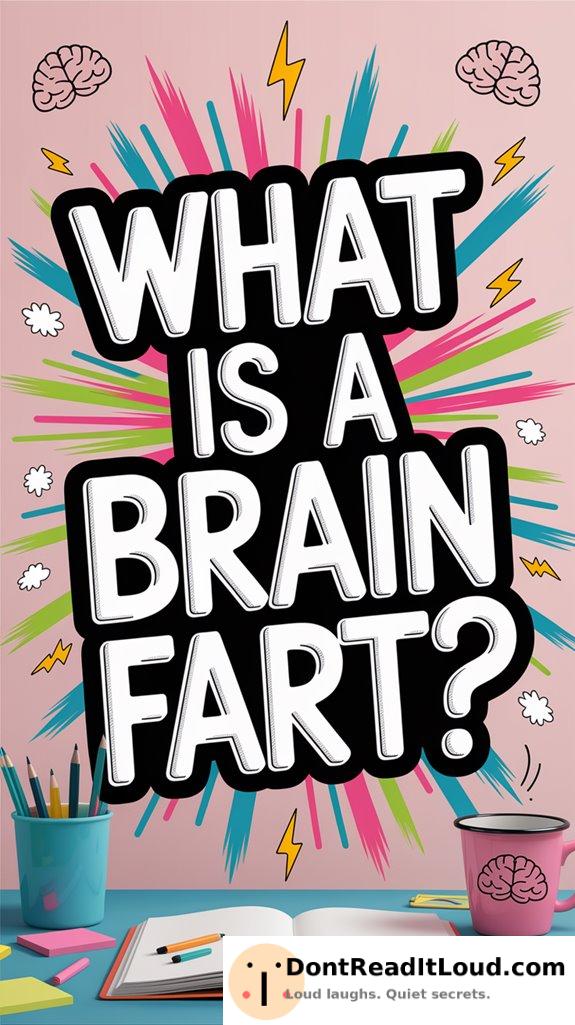
When you have a brain fart, your mind temporarily blanks, causing brief lapses in memory or concentration. These moments, often triggered by stress, fatigue, or distractions, are usually harmless. You might forget why you walked into a room or look for something that’s already in your hand. Getting enough rest, lowering stress, and streamlining your activities can help reduce these mental slips. Curious about the science behind it? There’s more to learn.

Although everyone experiences them from time to time, “brain farts” are those brief moments when your mind seems to momentarily go blank. They’re technically known as “maladaptive brain activity changes” by neuroscientists and often show up as mental lapses or cognitive hiccups. You might find yourself standing in a room, confused about why you entered, or trying to remember a name you know well. These fleeting episodes of forgetfulness or mental slips are a normal part of life.
Brain farts can result from several factors. Stress, tiredness, and juggling too many tasks often contribute significantly. Lack of sleep can make memory, focus, and even perception worse, making you prone to these slip-ups. When doing repetitive tasks, your brain may try to conserve energy, which can lead to these lapses. Distractions, boredom, and too much information can also make it harder to concentrate. Some medications, poor nutrition, or certain health issues may also play a role. According to “The New Partridge Dictionary of Slang and Unconventional English,” the term “brain fart” is commonly used in informal conversations, reflecting contemporary slang trends.
You might notice symptoms like forgetting why you entered a room—often called the “doorway effect”—or losing your train of thought while speaking. Sometimes, you may look for glasses that are already on your head or draw a blank on a familiar name or route. These moments can leave you feeling foggy or momentarily confused, but they usually pass quickly as your brain recovers. Surprisingly, dolphins also experience mental glitches during learned tasks, showing that these lapses aren’t exclusive to humans.
Neurologically, these lapses are linked to the Default Mode Network (DMN), which becomes active during daydreaming or inward thoughts. When focusing, the brain normally suppresses the DMN, but during routine tasks, it may switch back to save energy. Reduced blood flow in areas that maintain attention can trigger these errors, but the brain typically acts fast to correct them. The Default Mode Network is one of the busiest neurological systems, and it competes with the attention network for cognitive resources.
While brain farts are common and generally harmless, they may happen more often with aging, stress, or when your attention is divided. Usually, these lapses aren’t a problem, but if they suddenly increase or disrupt your daily life, it’s a good idea to consult a doctor.
To reduce brain farts, make sure you get enough sleep—ideally six to eight hours each night. Manage stress with practices like meditation or deep breathing, and try to focus on one thing at a time instead of multitasking. Keeping notes and lists can also help prevent these little mental slips.
Conclusion
So, next time you experience a brain fart, don’t stress. It’s a common slip—we all have them. Your mind just needs a quick reset, like a brief computer glitch. Take it lightly, allow yourself a moment, and trust that your thoughts will clear up soon. These mental hiccups simply remind us that nobody’s perfect. Everyone deals with them once in a while.



